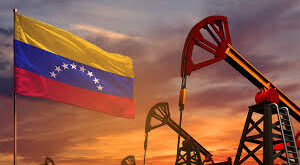The full promise of natural gas will unfold once the world is past the coronavirus pandemic, upbeat energy ministers of the leading gas exporting countries said at a recent GECF ‘Ministerial Roundtable’ held virtually
The full promise of natural gas will unfold once the world is past the coronavirus pandemic, upbeat energy ministers of the leading gas exporting countries said at a GECF Ministerial Roundtable held recently.
Natural gas is available in abundance, flexible enough to reach far-flung corners of the globe and less polluting to the environment.
As a sideline event to the 22nd Ministerial Meeting held under the auspices of Algeria recently, the virtual dialogue aimed to confront the array of challenges brought on by Covid-19 and the opportunities that are expected to propel natural gas to the top of the global energy mix by 2050.
The gathering of policymakers from the 20-member grouping featured two separate themes of short- and long-term perspectives, with the first session held under the title of “Natural gas in a post-Covid-19 world: A short-term view”, and the second entitled “Natural gas: a transition fuel or a destination?”
The first session was moderated by Stuart Elliot (S&P Global Platts) while Dr Bassam Fattouh (Oxford Institute for Energy Studies) was the second session moderator.
In his opening speech, Abdelmadjid Attar, Minister of Energy of Algeria, said, “I wish to underline the important role of natural gas in satisfying world energy needs. Natural gas is widely available. It is clean. It improves air quality, emits much less carbon dioxide than coal. It is flexible. These qualities of natural gas are recognised by many, if not all”
Attar, whose country is regarded as a pioneer in LNG with the first liquefaction plant commissioning in Arzew, Algeria in 1964, considered access to modern energy and protection of environment as two pressing issues.
“We need to ensure that the pandemic will not hinder progress on these two challenges. I wish to encourage the gas industry to strengthen its efforts in dealing with the issue of methane emission. This is important for natural gas to play a more important role in the energy transition that the world has engaged in,” explained Attar, while adding that Algeria’s vast gas resource will witness $20bn worth of investment in the next years.
GECF secretary general Yury Sentyurin advanced these comments by noting that natural gas is an energy option that achieves a harmonious balance between the environmental, social, and economic dimensions of sustainable development.
“GECF members are committed to strengthen global energy security as reliable suppliers of natural gas in order to meet the world’s growing energy demand. They showcased remarkable determination in their fulfilment of all contractual obligations to the customers. This indicates confidence in the strength of their economies and abilities to absorb major economic crises, notwithstanding numerous challenges and decline in revenues,” Sentyurin noted.
GECF’s Global Gas Outlook 2050 shows natural gas is growing at its fastest-ever rate and will become the largest global primary energy source by mid-century, from 23% today to 28% 2050.
Long-term demand is expected to grow by a remarkable 50%, from 3,950bn cubic metres (bcm) in 2019 to 5,920bcm in 2050.
Asia Pacific, North America, and the Middle East will carry more than 75% of this expected spur in demand.
Whilst the future looks promising, the short-term outlook seems dotted with perils for an industry being troubled by oversupply, bulging inventory, and now an economic recession.
Experts at the Roundtable noted that in 2020, for the first time in more than a decade, global gas consumption was expected to decline by 2 – 3.5% from the 2019 level. This slump in gas consumption has been driven by a combination of notable events, including above-normal temperatures in the northern hemisphere, weaker gas demand from the power, commercial, and industrial sectors due to lockdown measures, and weaker economic growth.
Next year, global gas demand is expected to grow between 1.5 – 4%, but will depend mainly on the extent of lockdown measures associated with the resurgence of the pandemic, the recovery in gas demand lost due to Covid-19, as well as the weather condition in the upcoming winter.
For the medium term, sustained growth in developing Asian countries, particularly China and India, are expected to contribute to an uptick in gas consumption in the coming years.

Image processed by CodeCarvings Piczard ### FREE Community Edition ### on 2020-11-15 19:05:06Z | |
 Iran Energy News Oil, Gas, Petrochemical and Energy Field Specialized Channel
Iran Energy News Oil, Gas, Petrochemical and Energy Field Specialized Channel



